21.8. —
15.11.2020Julian Volz, Soufiane Ababri
15.11.2020
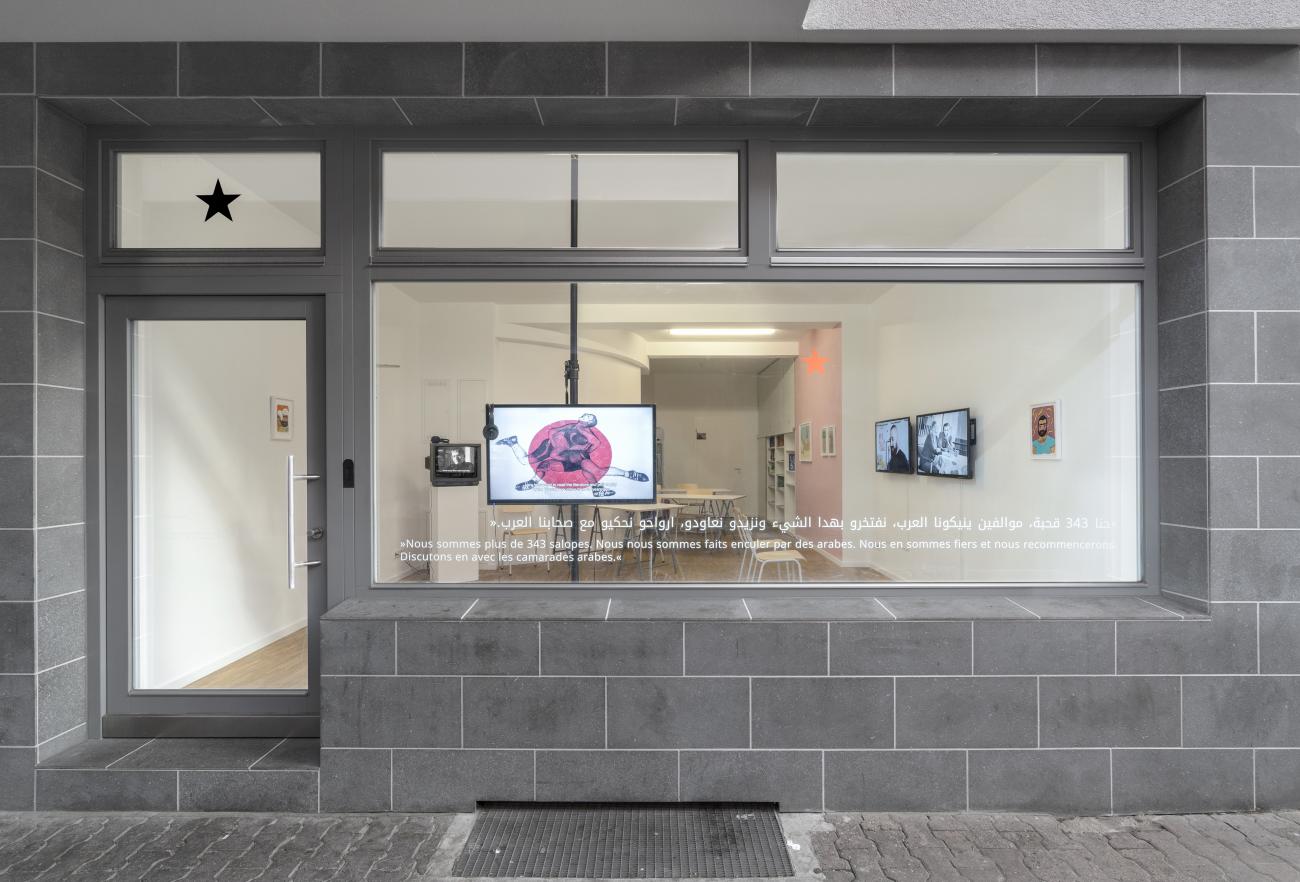
- Deutsch siehe unten -
Audiovisual research installation with Mohamad Abdouni, Antoine Idier, Abdellah Taïa, Alireza Sojaian & Akram Zaatari.
Drawings by Soufiane Ababri.
Opening on August 20, 2020 at 19:00 with a discussion at 20:00 between Julian Volz, Antoine Idier and Soufiane Ababri
at SYNNIKA
NIKA.haus
Niddastraße 57
60329 Frankfurt am Main.
Regular opening times: Fridays 3-6 pm and by appointment (hello [at] synnika.space), from August 21 to November 15.
Until the early 20th century, unlike any other region in European imagination, the Arabic-speaking world was associated with male homoeroticism. Through their writings and travels, intellectuals such as André Gide and Oscar Wilde contributed to establishing the "Orient" as a place of gay longing. While these imaginations still resonate, the Arabic-speaking world today is usually marked as deeply homophobic. Much less present in the West are the testimonies of homosexual struggles for emancipation and a lively queer culture that is sometimes lived more openly and sometimes more covertly. These struggles persist in contrast to the ostracism and criminalization of same-sex desire introduced by the former colonial powers and promoted by Islamist movements.
What cultural practices do queers develop in Arab societies today? How did it come to be that the "Orient" was considered sexualized, lascivious, decadent and effeminate in an epoch when a repressive sexual regime still prevailed in Europe, and today, in times of repressive desublimation, is mainly characterized as prudish, patriarchal, virile and backward? How could a queer culture be constituted that insists on universal liberation from heteropatriarchal structures, but does not only resort to strategies developed in Western societies?
The video installation Mithly sees itself as a contribution to answering these questions. On the one hand, it deals with orientalist fantasies about homosexuality and examines the role of same-sex desire in the construction of two supposedly incommensurable and hierarchically ordered cultural spaces. On the other hand, insights are provided into the positions of artists from the region itself who confidently counter these orientalist approaches with their own queer visual practice.
Additionally new drawings from the series "bedworks" by the Moroccan artist Soufiane Ababri will be on view. In his "bedworks" Ababri deconstructs images of masculinity and examines the power relations between Arab and European men in the gay subculture.
An Installation by Julian Volz
Camera, Sound, Editing: Yann Ducreux
The exhibition is supportet by Hessisches Ministerium für Wissenschaft und Kunst and Kulturamt Frankfurt.
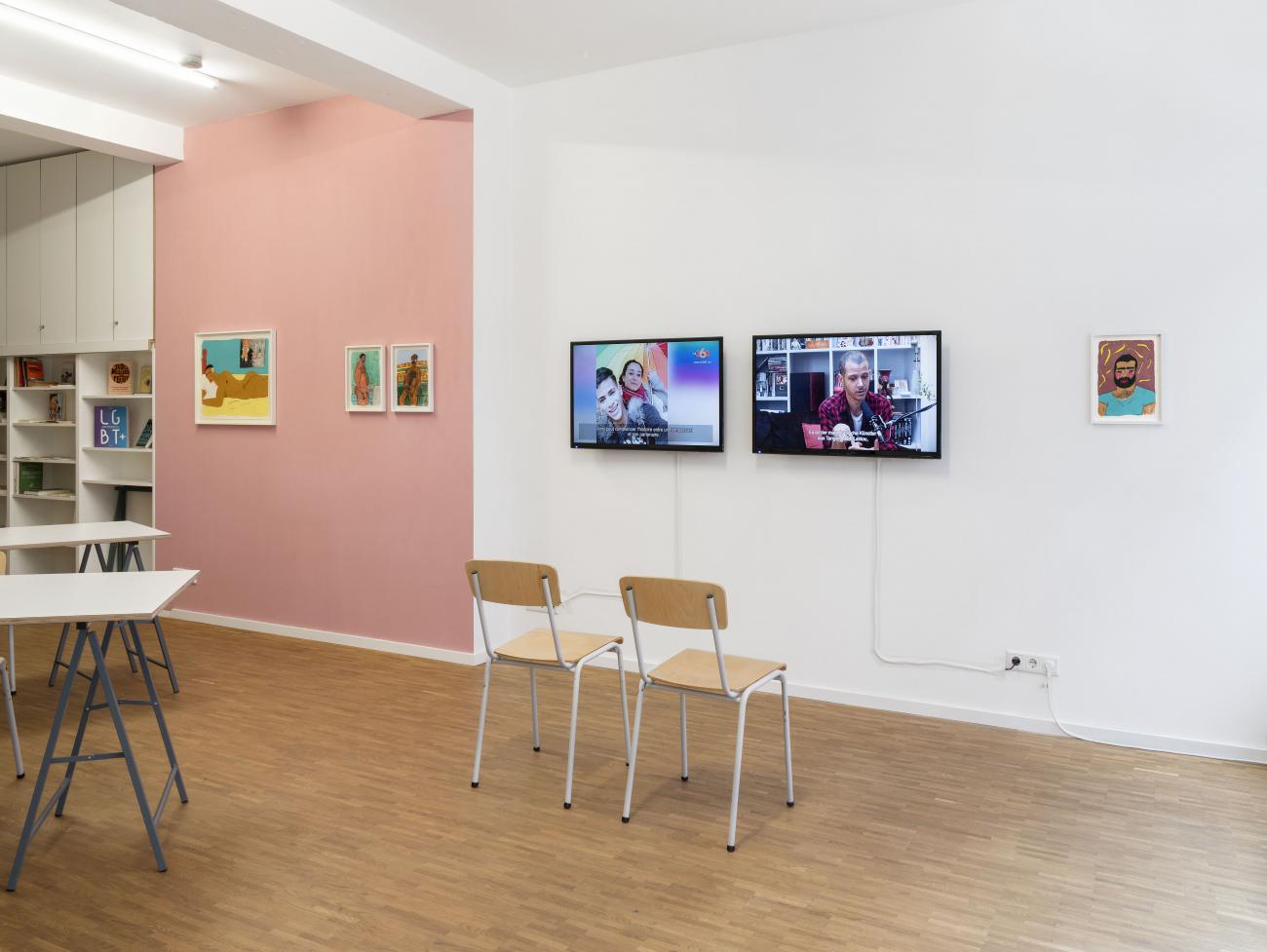
Mithly, 2019, by Julian Volz and Bedworks, 2020, by Soufiane Ababri
Audiovisuelle Rechercheinstallation mit Mohamad Abdouni, Antoine Idier, Abdellah Taïa, Alireza Sojaian & Akram Zaatari.
Zeichnungen von Soufiane Ababri.
Eröffnung am 20. August um 19:00 mit einer Diskussion zwischen Julian Volz, Antoine Idier und Soufiane Ababri um 20:00
im SYNNIKA
NIKA.haus
Niddastraße 57
60329 Frankfurt am Main.
Reguläre Öffnungszeiten: Freitags 15:00-18:00 und nach Vereinbarung (hello [at] synnika.space), vom 21. August bis 15. November.
Bis zu Beginn des 20. Jahrhunderts gab es in der Vorstellungswelt Europas wohl keinen anderen geografischen Raum, der so stark mit männlicher Homoerotik assoziiert wurde, wie der arabischsprachige. Einen Anteil daran hatten auch Schriftsteller wie André Gide und Oscar Wilde, die mit ihren Büchern und Reisen dazu beitrugen, den "Orient" als schwulen Sehnsuchtsort zu etablieren. Während diese Imaginationen noch nachhallen, wird die arabischsprachige Welt heute aber meist als zutiefst homophob markiert. Viel weniger präsent sind hierzulande die Zeugnisse eines homosexuellen Emanzipationskampfes und einer lebendigen queeren Kultur, die mal offener und mal verdeckter gelebt wird. Sie antwortet auf die von den ehemaligen Kolonialmächten eingeführte und von den islamistischen Bewegungen vorangetriebene Ächtung und Kriminalisierung gleichgeschlechtlichen Begehrens.
Welche kulturellen Praxen entwickeln Queers in arabischen Gesellschaften? Wie kam es dazu, dass der "Orient" in einer Epoche, in der in Europa noch ein repressives Sexualregime vorherrschte, als sexualisiert, lasziv, dekadent und effeminiert galt und heute, in Zeiten der repressiven Entsublimierung hauptsächlich als prüde, patriarchal, viril und rückwärtsgerichtet gekennzeichnet wird? Wie könnte eine queere Kultur beschaffen sein, die auf universeller Befreiung von heteropatriarchalen Strukturen besteht, dabei aber nicht nur auf in westlichen Gesellschaften entwickelte Strategien zurückgreift?
Die Video Installation Mithly versteht sich als Beitrag zur Beantwortung dieser Fragen. Sie beschäftigt sich zum einen mit orientalistischen Fantasien über männliche Homosexualität und untersucht, welche Rolle das männliche, gleichgeschlechtliche Begehren bei der Konstruktion zweier vermeintlich inkommensurabler und hierarchisch geordneter kultureller Räume spielte. Dem werden zum anderen Einblicke in die künstlerischen Positionen von Künstler*innen aus der Region selbst gestellt, die dem selbstbewusst eine eigene queere visuelle Praxis entgegenstellen.
Zusätzlich werden in der Ausstellung neue, bisher nicht ausgestellte Zeichnungen aus der Serie "bedworks" des marokkanischen Künstlers Soufiane Ababri zu sehen sein. In seien "bedworks" dekonsturiert Ababri Männlichkeitsbilder und setzt sich mit Machtverhältnissen zwischen arabischen und europäischen Männern in der schwulen Subkultur auseinander.
Eine Installation von Julian Volz
Kamera, Ton, Schnitt: Yann Ducreux
Die Ausstellung wird unterstützt vom Hessischen Ministerium für Wissenschaft und Kunst und dem Kulturamt Frankfurt.
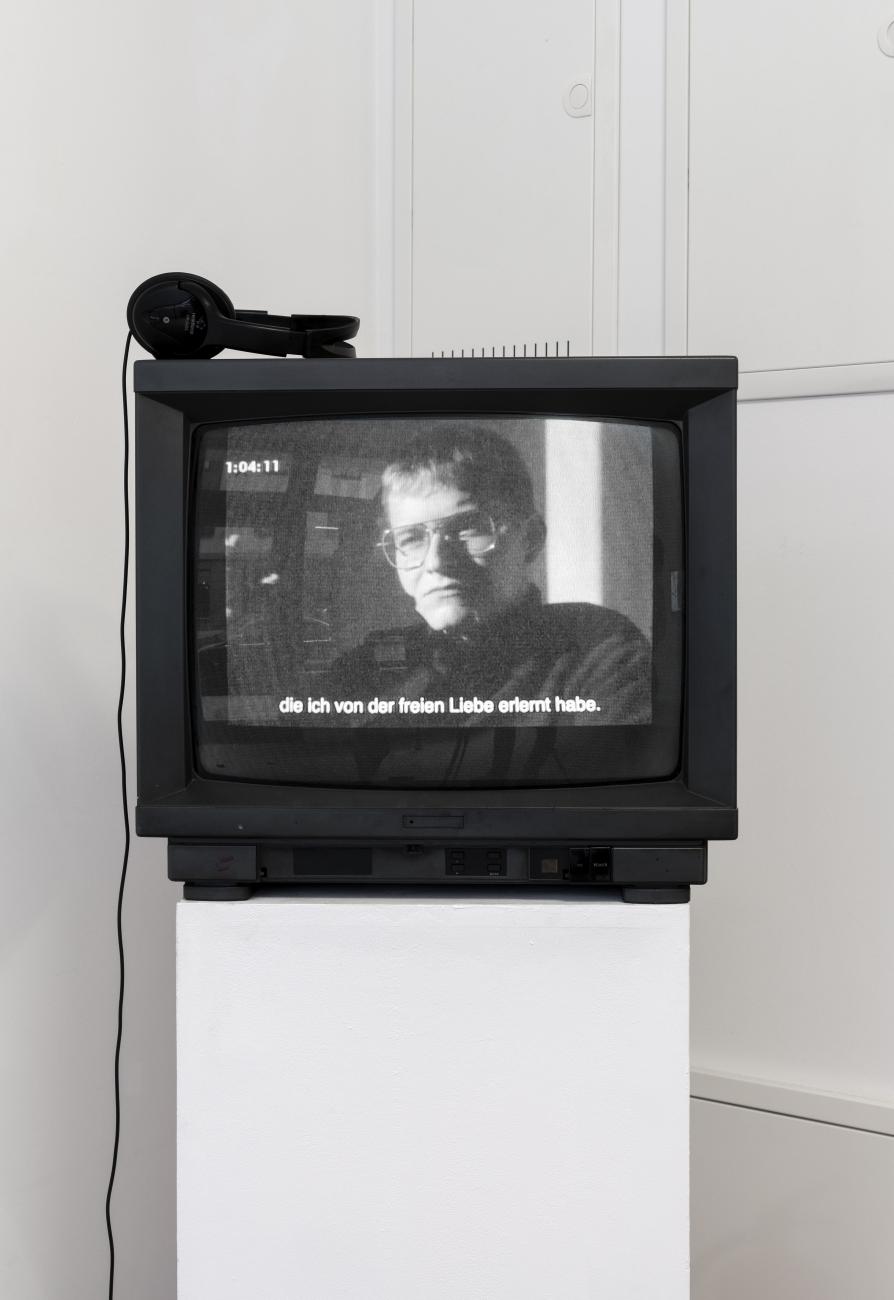
Mithly, 2019, by Julian Volz
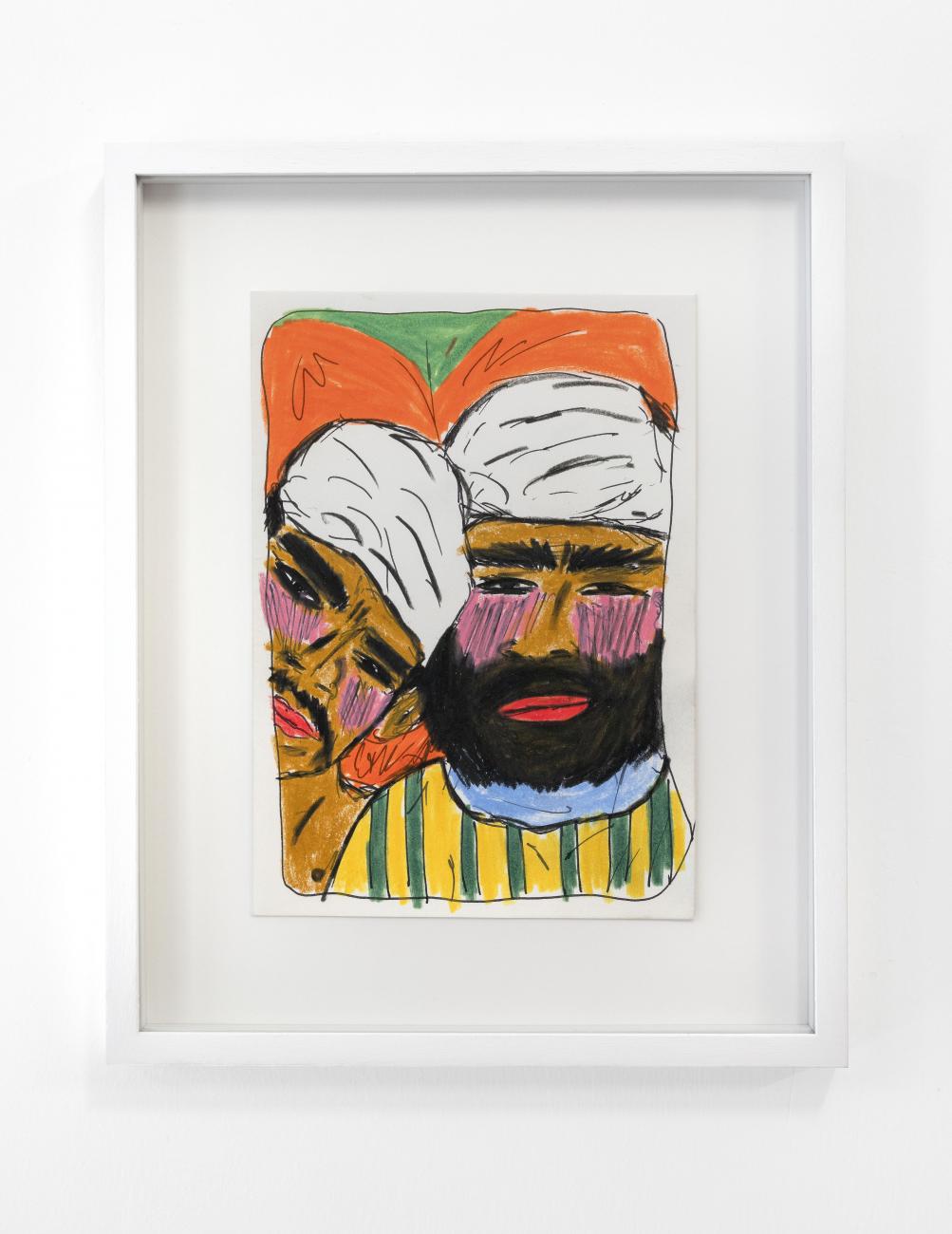
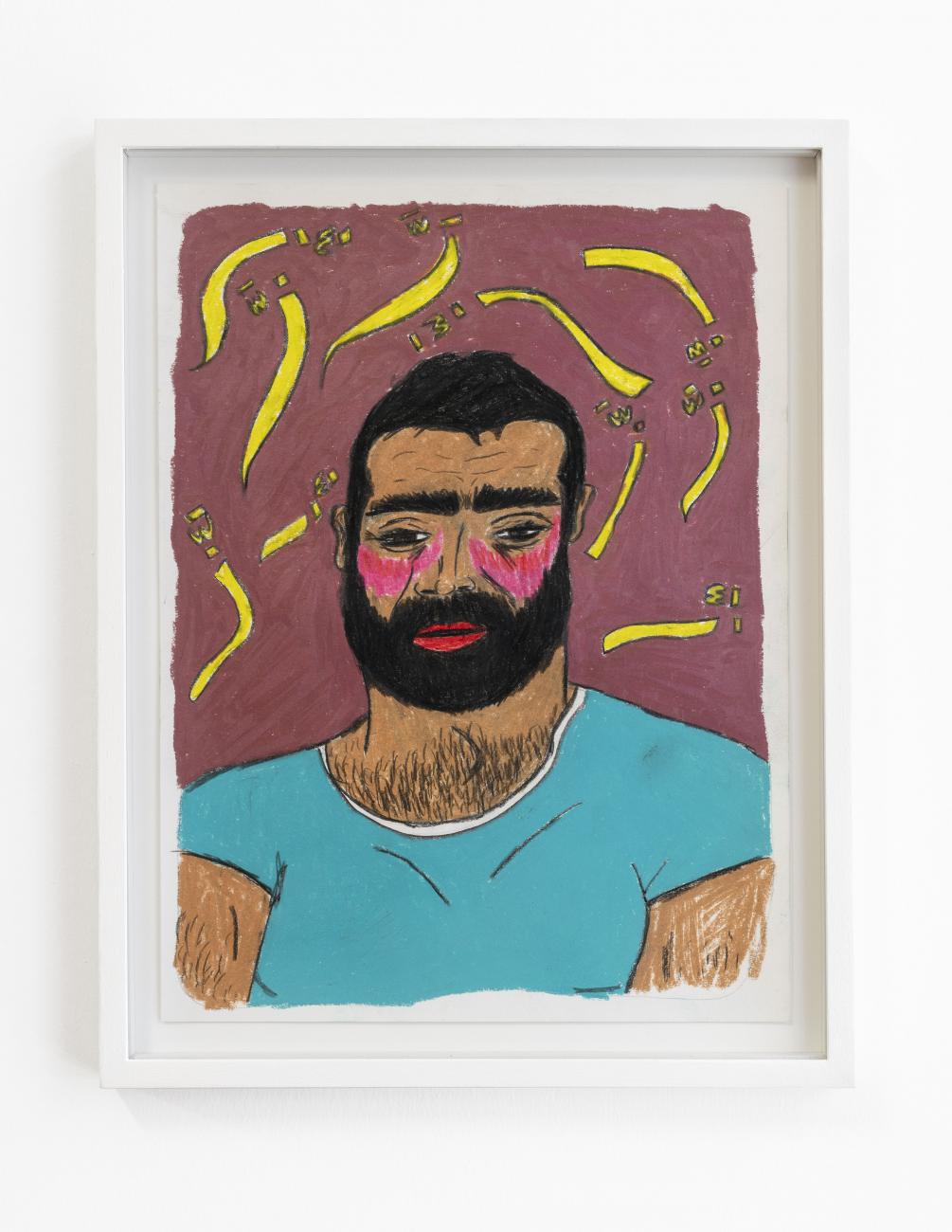
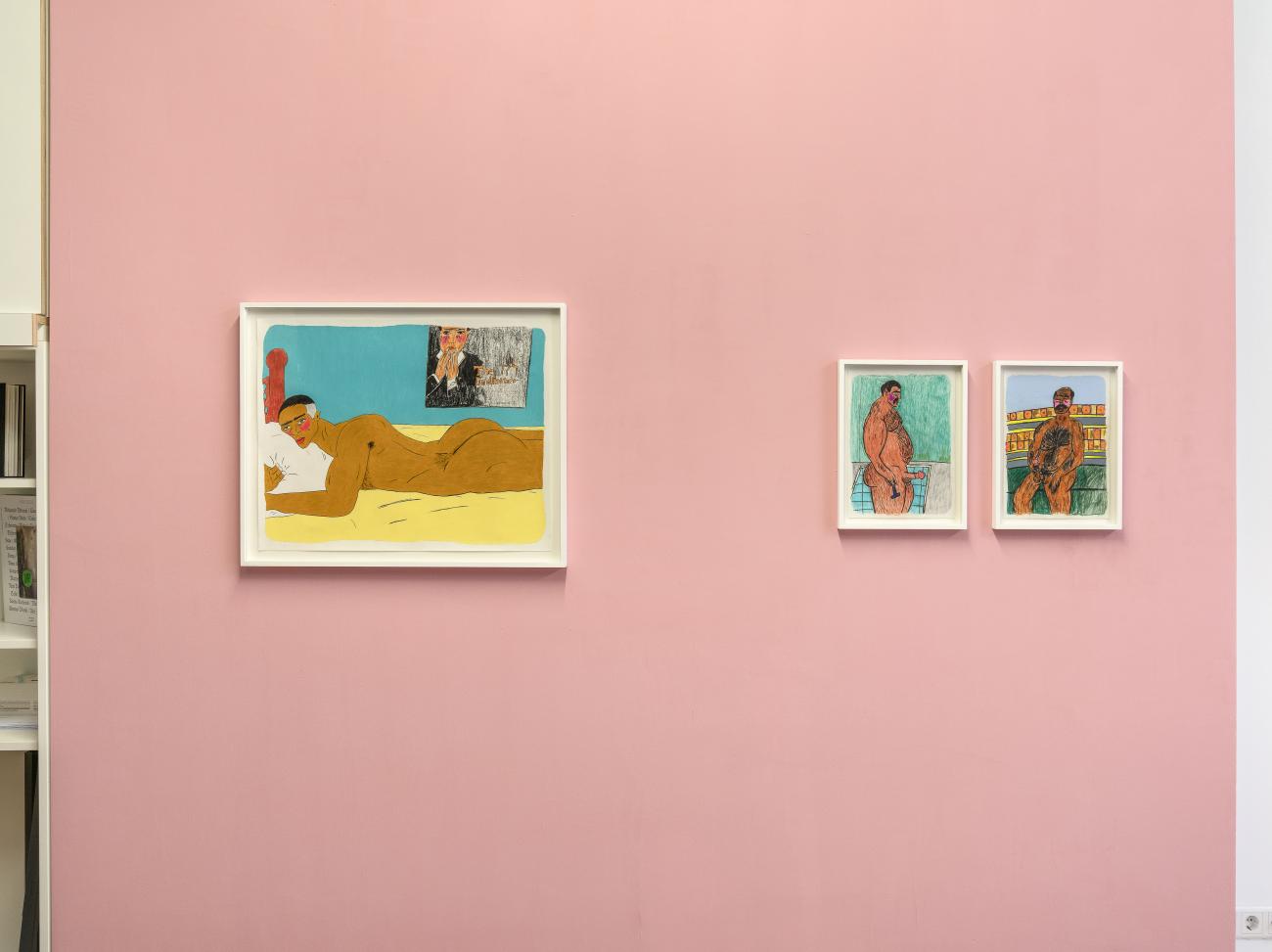
Bedworks, 2020, by Soufiane Ababri
Fotos: Wolfgang Günzel